Depression Awareness: Empowering Mental Health
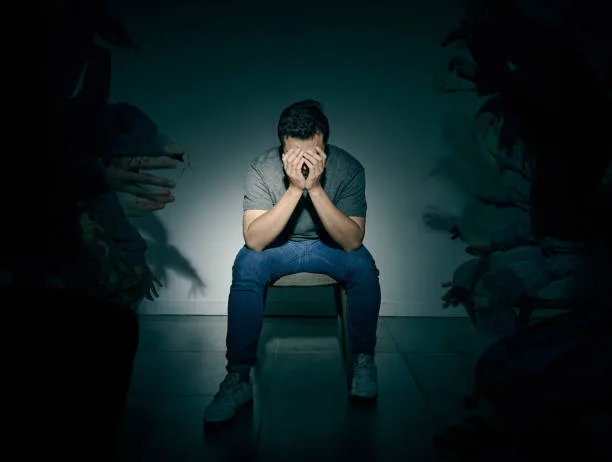
“Hey there, wonderful soul! Today, we’re looking at a topic that’s important to all of us – ‘Depression Awareness’.
my lovely readers, It’s not just a conversation; it’s a shared space where emotions flow and empathy. grows, and understanding becomes our compass. So, take a symbolic hand, and let’s walk the path together.
This isn’t just an essay; it’s a passionate invitation to explore, feel, and connect. A friendly talk. Get ready for a conversation meant to uplift, empower, and remind you that you’re not alone on this journey.”
let’s see the introduction,
In a world where the pace of life can be relentless and expectations are high, it’s important to shine a light on a silent struggle that affects millions of people: depression.
Understanding the nuances of depression and promoting awareness is not the only requirement. It is the responsibility of all of us. Let’s embark on a journey to uncover the layers of depression, from its prevalence to the stigma that often surrounds it.
Prevalence of depression
Figures and Numbers
Depression is more than just feeling sad. It is a prevalent mental health condition that transcends borders and demographics. The statistics speak volumes, emphasizing the urgent need for awareness campaigns and proactive mental health initiatives.
Effects on Individuals and Society
Beyond statistics, the impact of depression on individuals and society as a whole is profound. From strained relationships to decreased productivity, depression casts a long shadow. Acknowledging this impact is the first step toward developing empathy and understanding.
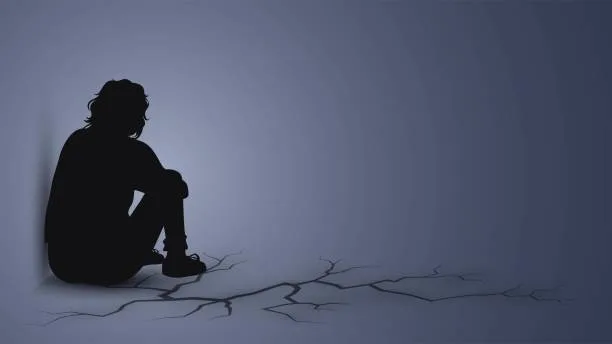
Signs and symptoms
Recognize Emotional and Physical Indications
Depression manifests itself in different ways, affecting not only the emotions but also the physical well-being. Early recognition of these symptoms is crucial for timely intervention and help.
Understanding the different types of depression
Depression is not a one-size-fits-all condition. By examining the different types of depression, we can gain insight into the complexities of this mental health challenge.
In the Diagnostic Statistical Manual of Mental Disorders, Fifth Edition (DSM-5), the American Psychiatric Association classifies depressive disorders as follows:
Major Depressive Disorder (MDD):
A diagnosis of major depressive disorder indicates persistent feelings of sadness, hopelessness, or worthlessness for at least two weeks, accompanied by additional symptoms such as disturbances in sleep patterns, activity Loss of interest, or change in appetite. It represents a severe manifestation of depression and stands out as one of the most prevalent types.
Persistent Melancholic State (PDD):
Persistent depressive disorder refers to a mild or moderate form of depression that persists for at least two years, characterized by less severe symptoms than major depressive disorder. In the past, healthcare practitioners referred to PDD as dysthymia.
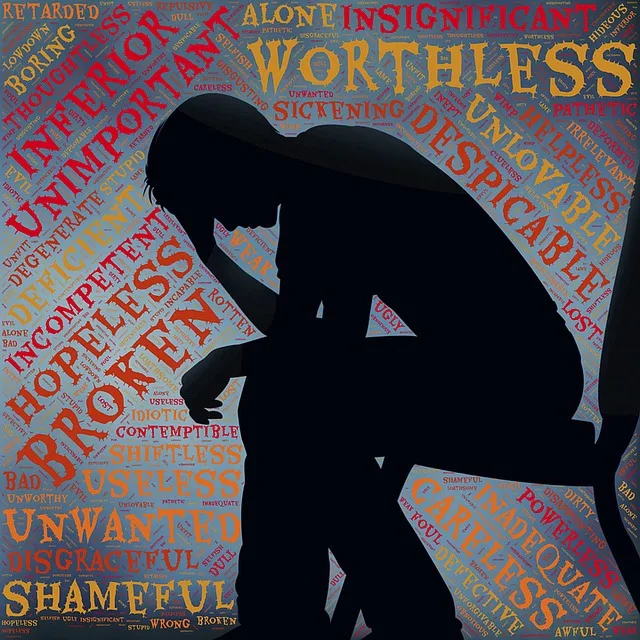
Disruptive Mood Dysregulation Syndrome (DMDS):
DMDS causes chronic, intense irritability and frequent outbursts of anger in children, usually starting around age 10.
Premenstrual Dysphoric Disturbance (PMDD):
PMDD is characterized by premenstrual syndrome (PMS) symptoms accompanied by mood-related manifestations such as severe irritability, anxiety, or depression. Although these symptoms resolve soon after the onset of menstruation, their severity can significantly interfere with daily life.
Depression caused by another physical condition:
A number of medical conditions can induce physical changes that lead to depression, including hypothyroidism, heart disease, Parkinson’s disease, and cancer. Dealing with the underlying illness often results in an improvement in associated depression.
Additionally, there are specific symptoms of major depressive disorder, including:
Cyclical Affective Disorder (Seasonal Depression):
This type of major depressive disorder emerges during the fall and winter, subsiding with the arrival of spring and summer.
Prenatal Depression and Postpartum Depression:
Antenatal depression appears during pregnancy, while postpartum depression develops within four weeks of childbirth. The DSM designates these events as “major depressive disorder (MDD) with peripartum onset.”
Atypical Depression:
Symptoms of this condition, also known as major depressive disorder, deviate slightly from “normal” depression with unusual features. The primary distinction is in the temporary elevation of mood in response to positive events (mood reactivity). Additional prominent symptoms include increased appetite and sensitivity to rejection.
People with bipolar disorder also experience episodes of depression that are interspersed with manic or hypomanic episodes.

Causes of Depression
When it comes to knowing why people get depressed, scientists are still trying to unravel the mystery. They have a bunch of ideas, like:
Brain Chemistry:
Depression seems to be linked to a disturbed balance of brain chemicals, including serotonin and dopamine.
Family Ties:
If someone in your immediate family, such as a parent or sibling, deals with depression, you are about three times more likely than the average person to experience it yourself. But, surprisingly, you can be depressed even without a family history.
Life’s Roller Coaster:
Going through difficult things, such as losing a loved one, dealing with trauma, going through a divorce, feeling alone, or lacking a support system, can trigger depression.
Health Obstacles:
Ongoing pain or dealing with chronic conditions like diabetes can bring on the blues.
Medication Blues: Some medications can mess with your mood and cause depression as a side effect. Also, substances like alcohol can either trigger depression or make it worse.
Would you like to read:https://drreactivate.com/understanding-schizophrenia/
Different treatment options
From therapy to medication, the array of treatment options for depression is diverse. Navigating these choices according to individual needs is critical to effective management.

Self-help strategies
Lifestyle changes
The role of stress and lifestyle
Stress As a Trigger
Stress is a common companion in modern life, but its role as a trigger for depression cannot be underestimated. Exploring the relationship between stress and depression offers valuable insights.
Lifestyle Choices and Mental Health
Our lifestyle choices, from diet to sleep patterns, can significantly affect mental health. Making informed decisions in these areas can be a powerful tool in the prevention and management of depression.
Educate Yourself.
One way to regain a sense of control when you’re diagnosed with depression or a related illness is to educate yourself about your illness. You can do this by talking to your doctors, learning from others who have depression, and reading books and articles about depression.
The more you know about depression and its treatment, the better you can manage your depression and understand what treatment options may be best for you.
Sleep Well
Good sleep directly affects your mental and physical health and your quality of life. Depression and related disorders can disrupt your sleep, so it’s important to establish a regular sleep pattern. Below are some tips for getting a good night’s sleep:
=Stick to a schedule by trying to go to bed and wake up at the same time each day. Use this sleep diary to help you track your sleep.
=Don’t go to bed hungry or too full, which can cause discomfort.
=Avoid caffeine after 4 pm and try not to drink more than 2 cups of caffeinated drinks per day.
=Leave to rest for at least 30 minutes before bed.
=Make your room cool, dark, and quiet to create a room that is perfect for sleeping.
=Try to let go of your worries or anxieties before going to bed. Set aside time during the day to solve problems or write down ideas.

Get Active
Regular physical activity such as walking, running, or playing sports can improve your mood, distract you from worries, and relieve stress and tension. Exercise can also improve your general health. You’ll get the most benefit from 30 minutes or more of regular exercise, but it’s fine to increase gradually. Below are some recommendations for getting started with a new exercise routine:
=Consult your doctor before starting a new exercise program.
=Increase your activity level over time to ease into an exercise routine and build your confidence.
=Schedule some form of exercise every day, but allow for changes in your routine when something comes up.
=Use this physical activity log to help track your activity.
EAT WELL
Dealing with anxiety or depression can make it difficult to eat well, but good nutrition is essential to your mental well-being. Following some basic tips can boost your energy, mood, and overall health:
=Learn to cook simple meals that don’t take much time or energy to prepare. If you live on your own and are not eating well, consider using frozen or home-delivered dishes.
=Use times when you feel good to prepare meals ahead of time (for example, make dinner later if you have energy in the morning) or cook large quantities and freeze them.
=Limit caffeine and sugar, which often cause mood and energy problems.
=Choose frozen foods over fresh as often as possible.
=Eat lean meats and proteins such as fish, white meat chicken, lean beef, eggs, beans and nuts.
=Avoid foods high in saturated fat.
=Avoid highly processed foods as much as possible.
=Eat fruits and vegetables in different colors. Different colors represent different types of nutrients that your body needs to stay healthy.
=Use this daily food diary to help you track your food intake so you can improve over time.
Avoid Drugs and Alcohol.
People often turn to drugs or alcohol to relieve or control feelings such as stress, sadness, or anger. However, substance use can worsen or exacerbate anxiety or depression and make it very difficult to recover.
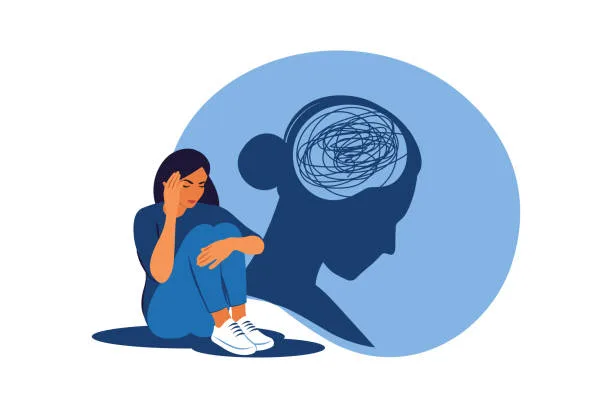
Reduce and Manage Your Stress.
Stress affects everyone from time to time and not all stress is harmful. However, high stress over time can negatively affect your mental and physical health and can be a risk factor for depression or anxiety.
People experience stress in a variety of ways (eg, headaches, trouble sleeping, anger, stomach aches, sadness). Stress management will help you deal with the stress in your life more effectively. Here are some practical tips to reduce your stress:
=Keep track of when you feel stressed and journal your reactions to better understand the source of your stress.
=Make a list of ways to recharge and unlock. For example, take a bath, read a book, listen to music, or watch a TV show you enjoy. Do at least one of these activities every day.
=Take breaks from work or other structured activities. During breaks, spend time outside walking, listening to music, or sitting quietly to clear and calm your mind.
=Seek help from trusted friends and family or a mental health professional if you need to “come out” about situations that are causing stressful feelings.
=If you have too much on your plate, eliminate unnecessary commitments and try not to take on new responsibilities in your professional or personal life. Try to find a healthy balance between work and other activities.
=If possible, delay major life changes such as changing jobs or moving until you feel less stressed.
=If something or someone is bothering you, express your concerns openly.
=Adapt to stressful situations by changing your behavior and expectations. For example, consider the big picture by asking how important the situation will be in the future. Consider accepting that it’s okay not to do everything perfectly!
=Consider what you appreciate in your life to help you put things in perspective. Try to see stressful situations in a more positive light. Instead of focusing on things that are out of your control, focus on things that you can control, such as the way you choose to react to problems. Instead of fretting over a long line, consider it an opportunity to slow down and think or call a friend.
would you like to read:https://drreactivate.com/maternal-mental-health/

Seek professional help
The Importance of Early Intervention
Early intervention is a game changer in the realm of depression. Understanding the importance of seeking professional help and removing the stigma attached to it is an important step in the right direction.
Stigma around depression
Breaking Down Misconceptions
Stigma related to mental health can be a formidable barrier. Breaking down misconceptions and promoting open dialogue is key to breaking down this stigma.
Encourage Open Communication
Encouraging open conversations about mental health creates a safe space for individuals to share their experiences and seek help without fear of judgment.

Depression in certain demographics
Depression In Adolescence
Understanding the unique challenges youth face in coping with depression opens avenues for targeted interventions and support.
Depression In The Elderly
The elderly population faces various mental health challenges. Discovering these challenges helps tailor strategies for better mental health in older age.
Depression and physical health
The relationship between mental and physical well-being
The complex relationship between mental and physical health emphasizes the importance of a holistic approach to well-being.
Addressing a Holistic Approach
Addressing both the mental and physical aspects ensures a comprehensive strategy for managing and preventing depression.
Effects of social media on mental health
The Role of Social Media In Depression
The pervasive influence of social media can affect mental health. Examining this role helps individuals make informed choices in their online interactions.
Positive Use Of Social Media For Mental Health
While social media can pose challenges, it also provides opportunities for support and connection. Exploring the positive uses of social media promotes a balanced approach.

Helping loved ones with depression
Building Empathy And Understanding
Helping a loved one with depression starts with compassion and understanding. Insight into their struggles paves the way for effective collaboration.
Offer effective support
Practical ways to offer support to someone dealing with depression create a network of care that can make a significant difference.
Personal stories of overcoming depression
Impressive Narrative
Personal stories of overcoming depression inspire hope and resilience. Sharing these narratives fosters a sense of community and understanding.
Lessons Learned From Recovery
Discovering lessons learned from those who have overcome depression provides valuable insight for others on their recovery journey.
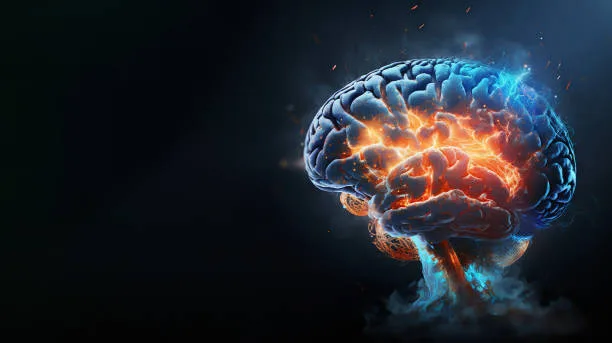
conclusion
In summary, our exploration into the realm of depression awareness underscores the transformative power of empathy, understanding, and open communication in dismantling the pervasive stigma surrounding mental health.
By delving into the intricate nuances of this silent adversary, we recognize that compassion is not merely a virtue but a formidable force for societal change. It is through the unraveling of the complexities surrounding depression that we pave a path toward a culture that values mental well-being as an intrinsic part of overall health.
In fostering an environment that encourages transparent dialogue, we actively work to deconstruct the barriers that prevent individuals from seeking help. This commitment goes beyond destigmatizing depression; it builds a foundation for a compassionate and supportive community.
In this collective endeavor, we aim to create a space where individuals feel not only safe but empowered to prioritize their mental health, free from the shackles of judgment.
As we advocate for these values, we contribute to a future where the shadows of the mind are dispelled, replaced by the illuminating warmth of empathy and the resilience that arises from shared awareness.
Our commitment to mental health becomes a cornerstone for a society that not only acknowledges the realities of depression but actively works towards a future where everyone can thrive emotionally and psychologically.
FAQs
Is depression treatable?
Yes, depression is treatable, and getting professional help is an important step toward recovery.
How can I help a friend with depression?
Offering a listening ear, being nonjudgmental, and encouraging professional help are effective ways to help a friend.
Are there lifestyle changes that can help manage depression?
Yes, adopting a healthy lifestyle, including regular exercise and a balanced diet, can have a positive effect on mental health.
Can Depression Affect Physical Health?
Of course, depression can manifest in physical symptoms and contribute to a variety of health problems.
Is it common for people to recover from depression?
Many people recover from depression with the right treatment, support, and lifestyle changes.


2 thoughts on “Depression Awareness: Empowering Mental Health”